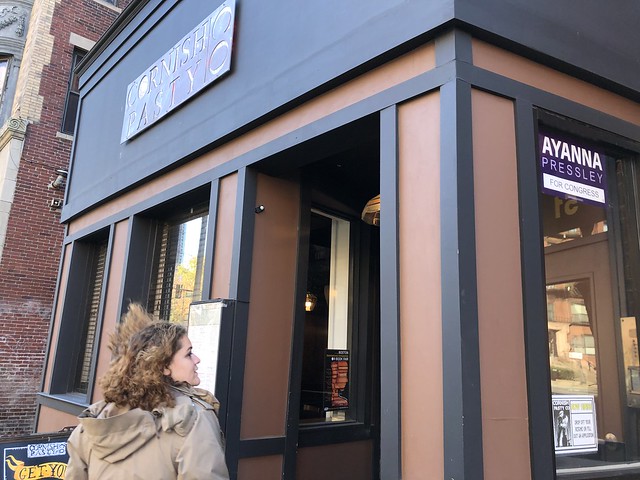
This restaurant in Boston was life-changing.
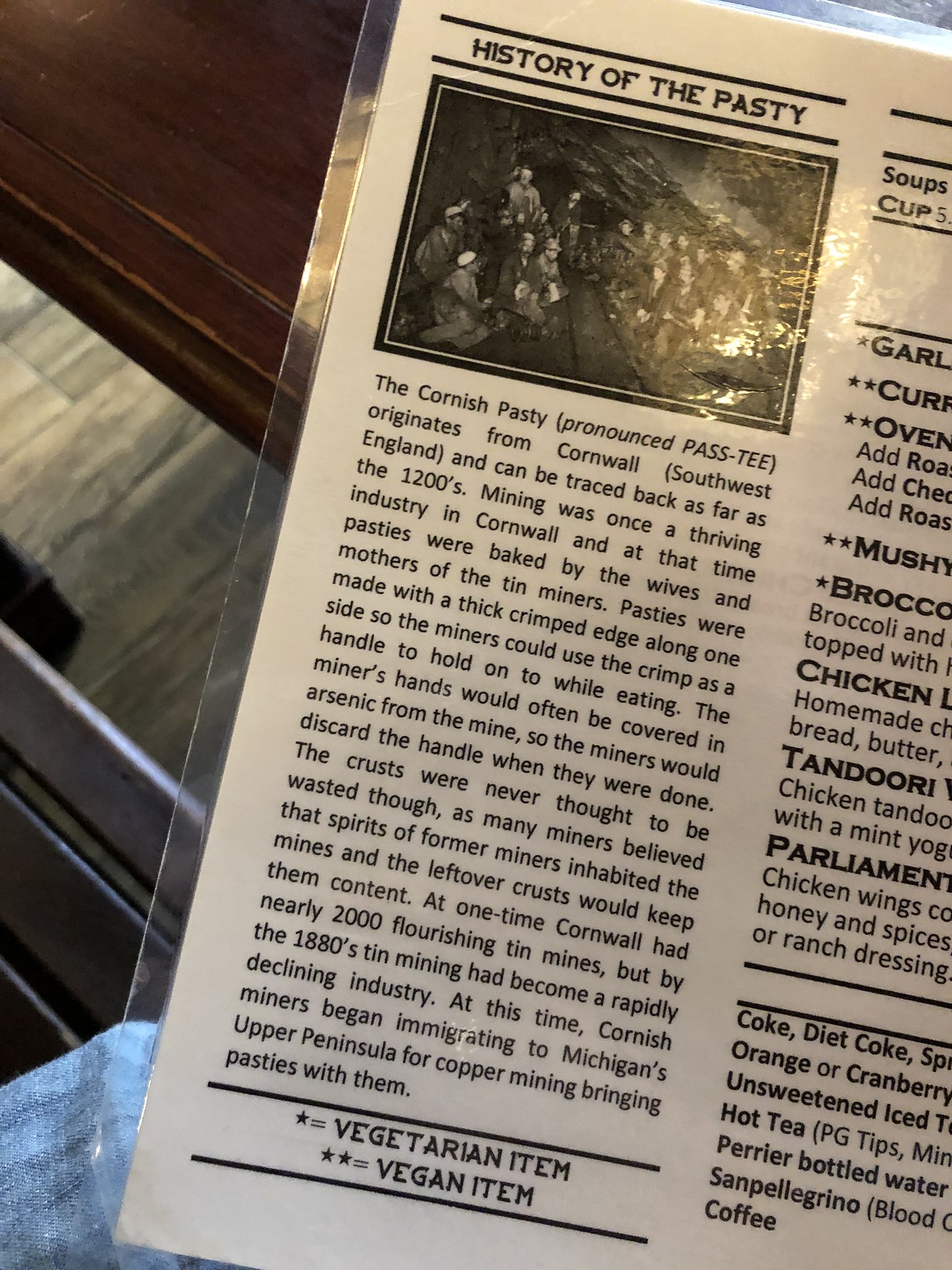 I don't say that often. And it may be for reasons other than you're imagining.
I don't say that often. And it may be for reasons other than you're imagining.
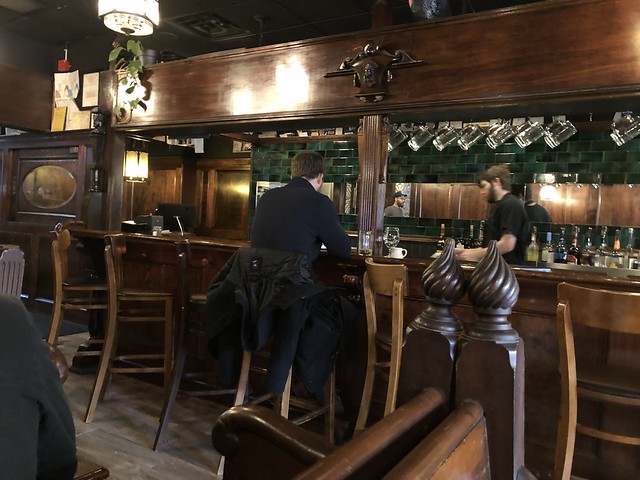 But the Cornish Pasty Co. has changed my life.
But the Cornish Pasty Co. has changed my life.
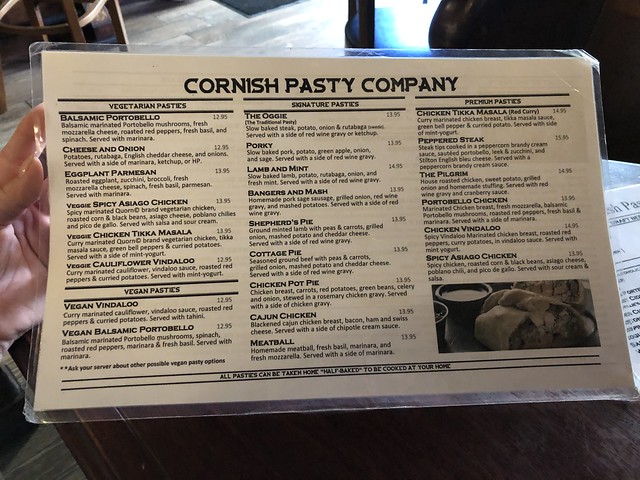 You see, I wrote a book on pepperoni rolls, but during my entire research, I really never stumbled upon pasties. (PAST-TEES)
You see, I wrote a book on pepperoni rolls, but during my entire research, I really never stumbled upon pasties. (PAST-TEES)
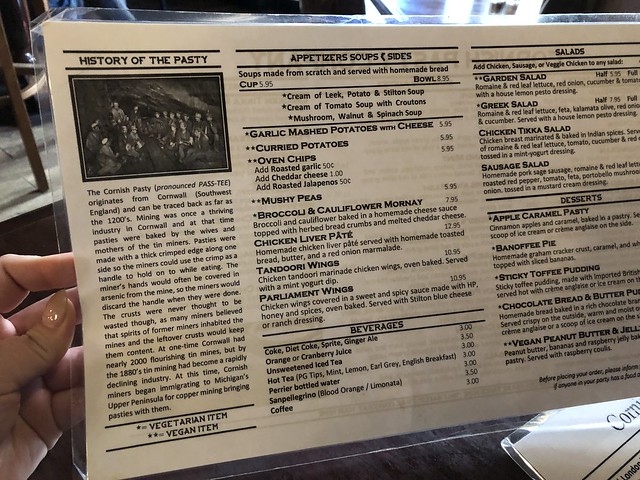 The history of the pasty sounds similar, no?
The history of the pasty sounds similar, no?
The Cornish Pasty (pronounced PASS-TEE) originates from Cornwall (Southwest England) and can be traced back as far as the 1200’s. Mining was once a thriving industry in Cornwall and at that time pasties were baked by the wives and mothers of the tin miners. Pasties were made with a thick crimped edge along one side so the miners could use the crimp as a handle to hold on to while eating. The miner’s hands would often be covered in arsenic from the mine, so the miners would discard the handle when they were done. The crusts were never thought to be wasted though, as many miners believed that spirits of former miners inhabited the mines and the leftover crusts would keep them content. At one time Cornwall had nearly 2000 flourishing tin mines, but by the 1880’s tin mining had become a rapidly declining industry. At this time, Cornish miners began immigrating to Michigan’s Upper Peninsula for copper mining bringing pasties with them.
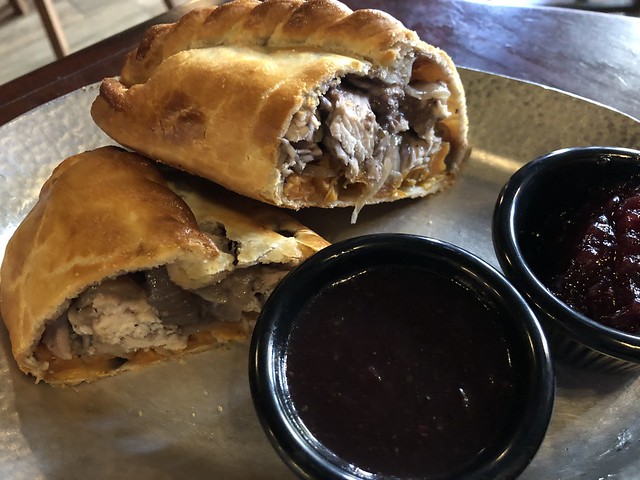
I ordered the "Pilgrim Pasty," which had house-roasted chicken, sweet potato, grilled onion and homemade stuffing, served with red wine gravy and cranberry sauce. I love a good Thanksgiving mash-up.
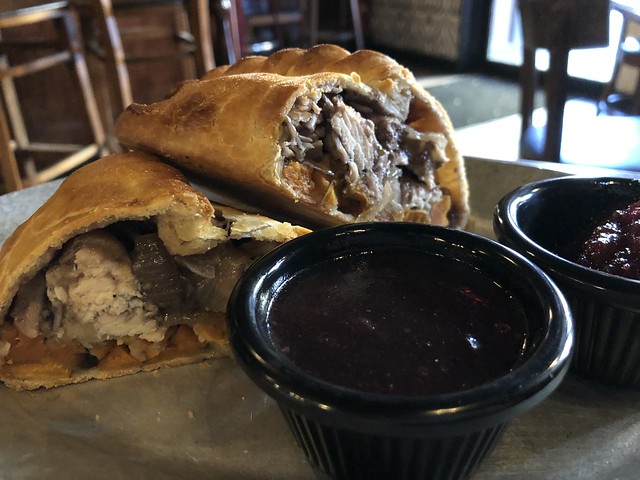 But what I love more is this distant relative to the pepperoni roll. There are tons of foods created with a pastry coating and filling side, but this one had the same reasons behind that. And now I'm hooked.
But what I love more is this distant relative to the pepperoni roll. There are tons of foods created with a pastry coating and filling side, but this one had the same reasons behind that. And now I'm hooked.

0 comments